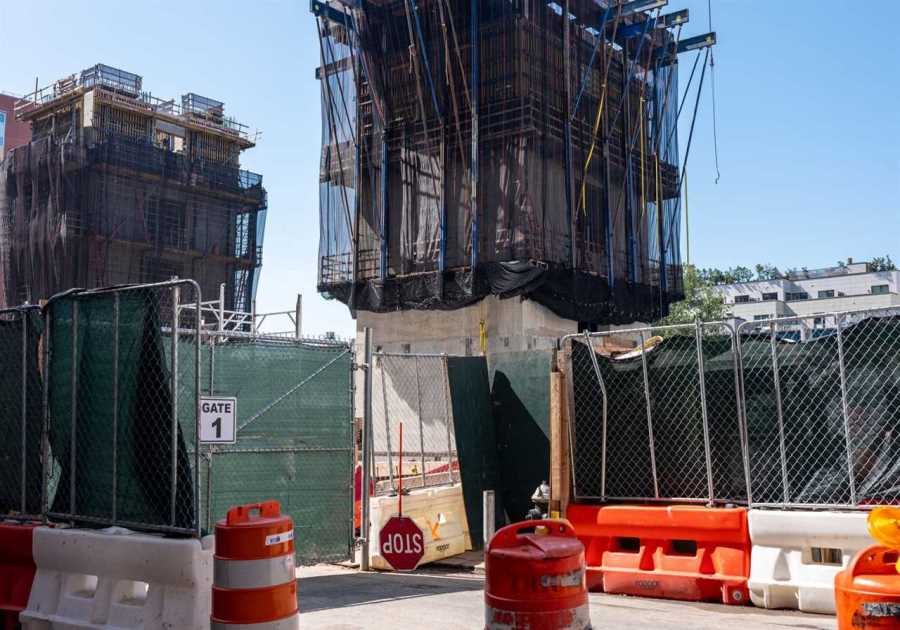Westend61/Getty Images
- Middle managers are getting hit hard by burnout this year.
- Layoffs, busywork, and fights over remote work have stressed out many managers.
- More managers than non-managers are looking for new job opportunities, a Gallup survey found.
Kyle, a middle manager at a staffing company, said that a brutal combination of layoffs, fights about remote work, busywork, and burnout have made this his toughest year yet leading a team. He's not alone.
Managers like Kyle are burning out and looking for jobs more aggressively, a recent Gallup survey found. Fifty-five percent of managers are watching for or actively seeking new roles, compared to 49% of individual contributors, or non-managers, putting some managers in "survival mode."
Insider verified the identity and employment status of Kyle, who asked for partial anonymity for fear of repercussions at his workplace. Kyle said the staffing industry began seeing high-level layoffs last year and his company cracked down on remote work. His employer also implemented a hiring freeze, downsizing his team.
"We've lost a lot more tenured people, so we've had to rely on a lot more inexperienced people, plus myself as a manager having to step in," Kyle said. "I'm just trying to broker all this, keeping that management style of being really employee-centered and retention-centered, which has gotten harder and harder."
He said these losses — including offers he had to revoke — were devastating to his workflow, as he needed to take on the work he would have assigned to others, meaning he's had much less time to coach and grow his team. He called it a "nasty attrition cycle."
"It's tough to watch a team that you had built lose people who have been with me since 2017 and 2018," Kyle said, "especially when you've worked so hard to keep them in the first place."
Managers are navigating high levels of burnout
An earlier Gallup survey found that among companies that are making cuts, middle managers are at the greatest risk of getting laid off this year. This has put more pressure on managers to do their work while also navigating additional challenges that emerged during the pandemic.
"Managers are needing to flex new muscles to lead differently in hybrid environments and are also in the emotionally burdensome and exhausting position of being caught between leaders and employees on the topic of return to office," Heather Barrett, a director at Gallup and the coauthor of the article, previously told Insider. "For many managers, they are being asked to communicate and enforce requirements that they personally may not prefer."
The conflicts about remote work, coupled with new metrics his team needed to meet, have worn him down.
All this is on top of an increasing workload that he had to take on after some tenured staff were laid off or quit. He's making calls in between one-on-one meetings and putting in an hour or two extra every day to get the work done.
"I've got two small kids at home and watching my own work-life balance evaporate," Kyle said. "To some extent, I just felt like that didn't need to happen."
Around half of managers said their teams went through restructuring this year, Gallup found, while 42% reported budget cuts — forcing them to change their workflows and team structures.
However, a salary raise to reflect the new duties may not be the solution. Even after receiving a promotion, managers are still looking for new jobs at a higher rate than individual contributors, an ADP Research Institute report found.
Some of this burnout comes from having to create hybrid or return-to-office policies that match the desires of workers, Barrett told Insider. Managers may risk harming team morale by instituting a stricter return-to-office policy, though they may face difficulties managing workers with drastically different preferences.
Contemplating calling it quits
Kyle said his flexible management style in past years paid off, as he had high retention rates and profitability on his team. Even during the "Great Resignation," he only lost one or two poor performers.
However, now that he's had to crack down on company policies, like return-to-office, Kyle fears more employees will leave. What's more, Kyle worries his employer may mandate four or five days a week in the office.
"They're not going to be very happy about it," Kyle said of his employees. "Having to walk that line knowing what I know, and also trying to be a transparent manager, is really difficult. I don't want to lose more people in anticipation of it by trying to get ahead."
In the back of his mind, Kyle said he knows he can keep being a resource for his team and continue leading his team to success, though he's considered stepping down to become a high-level individual contributor. Despite the efforts of his bosses to make his workload somewhat lighter, he's not sure how much longer he can keep pushing.
"If we do end up making the push to bring everybody in five days a week, I anticipate just not asking and sending in my step-down letter," Kyle said.
Are you a manager dealing with burnout? Contact this reporter at [email protected].
Read More
By: [email protected] (Noah Sheidlower)
Title: Middle managers are caught in a lose-lose between layoffs, burnout, and RTO policies. One millennial explains how he's handling the worst year ever.
Sourced From: www.businessinsider.com/middle-management-having-worst-year-ever-rto-layoffs-burnout-2023-9
Published Date: Sun, 24 Sep 2023 11:43:01 +0000
Did you miss our previous article...
https://trendinginbusiness.business/politcal/6-troubling-questions-about-the-corizon-bankruptcy-deal
.png)





